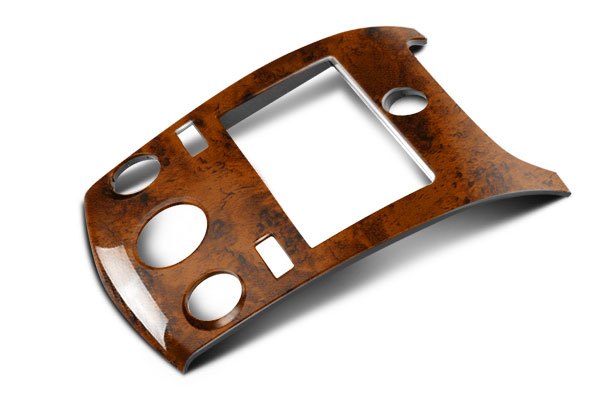دسته بندی ها
فن کولر اسپرت آئودی A3 SPORTBACK E-TRON PREMIUM PLUS 2018 | قیمت فن کولر اسپرت آئودی A3 SPORTBACK E-TRON PREMIUM PLUS 2018 | فروش فن کولر اسپرت آئودی A3 SPORTBACK E-TRON PREMIUM PLUS 2018 | انواع فن کولر اسپرت آئودی A3 SPORTBACK E-TRON PREMIUM PLUS 2018 | خرید فن کولر اسپرت آئودی A3 SPORTBACK E-TRON PREMIUM PLUS 2018 همچنان مربوط به بخش سیستم خنک کننده خودرو می باشد.برای توضیح نحوه عملکرد این قطعه باید بگویم که تصور کنید که با سرعت زیاد در جاده ای با شیب به سمت بالا در حال حرکت هستید و خودرو شما مدت زیادی ام هست که در حال حرکت می باشد .آیا وجود خنک کننده موتور اسپرت آئودی A3 SPORTBACK E-TRON PREMIUM PLUS 2018 | قیمت خنک کننده موتور اسپرت آئودی A3 SPORTBACK E-TRON PREMIUM PLUS 2018 | فروش خنک کننده موتور اسپرت آئودی A3 SPORTBACK E-TRON PREMIUM PLUS 2018 | انواع خنک کننده موتور اسپرت آئودی A3 SPORTBACK E-TRON PREMIUM PLUS 2018 موجود در آن و گردش مداوم آن باعث خنک شدن موتور خودرو و روغن درون آن و قطعات دیگر می شود؟ مسلما که پاسخ این سوال منفی می باشد برای خنک شدن تمام کاپوت و آئودی A3 SPORTBACK E-TRON PREMIUM PLUS 2018 | لوازم یدکی آئودی A3 SPORTBACK E-TRON PREMIUM PLUS 2018 | لوازم آئودی A3 SPORTBACK E-TRON PREMIUM PLUS 2018 | قطعات آئودی A3 SPORTBACK E-TRON PREMIUM PLUS 2018 | قطعات یدکی آئودی A3 SPORTBACK E-TRON PREMIUM PLUS 2018 | لوازم اسپرت آئودی A3 SPORTBACK E-TRON PREMIUM PLUS 2018 آن که با فاصله کم از یکدیگر قرار دارند نیاز به یک فن کولر پرفورمنس است.فن کولر PERFORMANCE COOLING FANS در زمانی که موتور درجه بالایی دارد شروع به چرخش می کند و این چرخش مداوم باعث گردش هوا درون کاپوت می شود . هوای خنک را به جریان می اندازد. اگر فن پرفورمنس شما و یا حتی سایر لوازم یدکی اسپرت ،قطعات پرفورمنس و لوازم تیونینگ شما دچار مشکل شد با ما تماس بگیرید.یک فن خنک کننده ، جریان هوای مورد نیاز برای کاهش حرارت مطلوب را فراهم می کند و صرفنظر از اینکه آیا شما می خواهید فن برقی خود را تغییر دهید یا فن برق فعلی خود را به یک CFM بزرگتر و بالاتر (Feat Cubic per دقیقه) .خنک کننده برای این کاهش دما موتور مناسب است. انتخاب ما شامل فن های تک و دوگانه الکتریکی، در محدوده ای از اندازه ها و رتبه های CFM، و همچنین طرفداران مکانیکی با تیغه های انعطاف پذیر و سخت، و برای استفاده در سرعت بالا است.در سرعت، اکثر وسایل نقلیه جریان هوا به میزان کافی از طریق مشبک جلو خودرو وارد می کنند تا موتور خنک شود. اما حتی اتومبیل های مسابقه نیز به آرامی و بیدرنگ افزایش دما دارند و در طی این دوره ها جریان هوا از طریق رادیاتور تولید شده توسط فن خنک کننده برای تخلیه گرما تولید شده بوسیله فشرده سازی بالا یا موتورهای RPM القایی اجباری کافی نیست. در نتیجه، گرمای بیش از حد در رادیاتور و موتور خنک کننده باقی می ماند، که می تواند منجر به موتور بیش از حد گرما و آسیب اجزای گران شود.طرفداران الکتریکی جریان هوای خنک کننده را در زمان کم RPM موتور هنگامی که فن کمربند به آرامی چرخش می کند، فراهم می کند. آنها در پاسخ به نیازهای خنک کننده موتور مطابقت دارند نه با توجه به سرعت موتور، که به موتور اجازه می دهد سریعتر به دمای عملیاتی برسد و سپس در محدوده دما مطلوب برای کارکرد موتور کار می کند. به علاوه یک فن برق، بار فن موتور را بر روی موتور حذف می کند، اجازه می دهد که اسب بخار بیشتری به چرخ های درایو ارسال شود و فشار بر پمپ آب کاهش یابد. فن های الکتریکی را می توان به عنوان طرفداران "هلر" در مقابل رادیاتور نصب کرد، که معمولا برای مکمل فن مکانیکی یا بیشتر به طرف موتور از رادیاتور، به عنوان فن های کشنده استفاده می شود. هوای ورودی هواپیما باید با خروجی موتور منطبق باشد، با یک موتور خیره کننده خیره کننده که به طور کلی نیاز به CFM کمتری نسبت به یک مگس اسب بخار را دارد. یک فن تنها باید تا آنجا که ممکن هست هسته رادیاتور را پوشش دهد و اگر ابعاد رادیاتور این را غیر ممکن کند، یک فن دوگانه ممکن است انتخاب خوبی باشد. طرفداران الکتریکی در دسترس هستند با و بدون پوشش. کنترل کننده های فن را می توان برای فعال کردن عملکرد فن در طیف وسیعی از درجه حرارت تنظیم کرد، به طور خودکار هنگامی که A / C فعال می شود، فن را روشن می کند، و اجازه می دهد تا لغو دستی. ما پیشنهاد می دهیم هر دو طرف مستقیم و برقی طرفداران الکتریکی، و بسیاری از طرح های نازک و کم مشخصات که قادر به نصب در جایی که فضا در حق بیمه است.اما اگر طرفدار فن کمربند هستید، مجبور نیستید به یک فن برق برسید تا هوا را از طریق رادیاتور بهبود بخشد. ما طرفداران قطر بزرگتری داریم که بسیاری از آنها دارای پره های بیشتری نسبت به طرفداران استاندارد، برای کلاهک های فن، در چرخش استاندارد و معکوس هستند. اگر شما می خواهید کلاچ فن و لغزش احتمالی را از بین ببرید، ما در هر دوی این ولت ها و در هر دو جهت چرخش معکوس ارائه می دهیم. تیغه فن Flex، در دسترس از فولاد ضد زنگ و یا آلومینیوم، منحنی برای ارائه جریان هوا در RPM پایین، و سپس صاف کردن زمانی که موتور برای کاهش سرعت کشیدن و بهبود عملکرد. طرفداران سفت و سخت ما جریان هوا را در تمام RPMs بهبود می بخشد، و ما فاصله ها برای اطمینان از فن به درستی در سقف قرار دارد.
................................................................................................
2018 audi a3 sportback e tron premium plus performance cooling fan | 2018 audi a3 sportback e tron premium plus performance cooling fan sale | 2018 audi a3 sportback e tron premium plus performance cooling fan buy | 2018 audi a3 sportback e tron premium plus performance cooling fan price is still related to the cooling system of the car. To explain how this part works, I have to say that imagine that you are moving at high speed on a road with a slope and your car has been in for a long time. It is moving. Does the presence of the radiator and the water in it and its constant circulation cause the car engine and the oil inside it and other parts to cool down? Of course, the answer to this question is no. A cooling fan is needed to cool all the hood and the parts inside it that are at a short distance from each other. The PERFORMANCE COOLING FANS fan starts to rotate when the engine has a high degree And this constant rotation causes air circulation inside the hood. It blows cool air. Contact us if you have a problem with your performance fan or even other 2018 audi a3 sportback e tron premium plus | 2018 audi a3 sportback e tron premium plus parts | 2018 audi a3 sportback e tron premium plus accessory | 2018 audi a3 sportback e tron premium plus parts sale | 2018 audi a3 sportback e tron premium plus parts buy | 2018 audi a3 sportback e tron premium plus parts price , performance parts and tuning accessories. A cooling fan provides the airflow needed to reduce the desired temperature, regardless of whether you can You will want to change your fan or your current fan to a larger and higher CFM (Feat Cubic per minute). The cooler is suitable for this reduction in engine temperature. Our selection includes single and dual electric fans, in a range of sizes and CFM ratings, as well as mechanical fans with flexible and rigid blades, for use at high speeds. They enter enough through the front grille to cool the engine. But even race cars heat up slowly and immediately, and during these periods the airflow through the radiator generated by the cooling fan is not sufficient to discharge the heat generated by the high-compression or forced induction RPM engines. As a result, excess heat remains in the radiator and cooling engine, which can lead to overheating of the engine and damage to expensive components. Gently rotates, provides. They meet the cooling needs of the engine, not the speed of the engine, which allows the engine to reach operating temperature faster and then operate within the desired temperature range for engine operation. In addition, an electric fan removes the load from the motor fan on the motor, allowing more horsepower to be sent to the drive wheels and reducing the pressure on the water pump. Electric fans can be installed as "Heller" fans in front of the radiator, which are usually used as lethal fans to complement the mechanical fan or further to the engine side of the radiator. The intake air of the aircraft must match the output of the engine, with a stunning engine that generally requires less CFM than a horsepower fly. A single fan should cover the core of the radiator as much as possible, and if the dimensions of the radiator make this impossible, a dual fan may be a good choice. Electric fans are available with and without cover. Fan controllers can be adjusted to enable fan operation over a range of temperatures, automatically turning on the fan when A / C is activated, and allowing manual cancellation. We offer both direct and electric sides for electric fans, and many thin and low profile designs that can be installed where space is premium. But if you are a fan of the belt fan, you do not have to go for an electric fan to Improve the air through the radiator. We have larger diameter fans, many of which have more blades than standard fans, for fan caps, in standard and reverse rotation. If you want to eliminate fan clutch and possible slippage, we offer reverse rotation in both of these volts. Flex fan blades, available from stainless steel or aluminum, are curved to provide airflow at low RPM, and then smoothed when the motor is reduced to speed and improved performance. Our rigid fans improve airflow at all RPMs, and we have distances to ensure the fan is properly located on the ceiling.
اکثر فن کولر اسپرت آئودی A3 SPORTBACK E-TRON PREMIUM PLUS 2018 موجود در بازار اصلی ، تایلندی ، تایوانی ، چینی و ساخت کشور تولید کننده خودرو میباشند.
قیمت فن کولر اسپرت آئودی A3 SPORTBACK E-TRON PREMIUM PLUS 2018 به متریال استفاده شده در ساخت و چگونگی تولید فن کولر اسپرت و از همه مهمتر ساخت کدام کشور است دارد
باید از جایی که فن کولر اسپرت آئودی A3 SPORTBACK E-TRON PREMIUM PLUS 2018 خریداری میکنیم با فروشنده تمام موارد رو که مد نظر مون هست چک کنیم از قبیل : ساخت کجاس ، چه قیمت است و آپشن های که فن کولر اسپرت دارد و .....
از جایی که تخصص آنها لوازم اسپرت آئودی A3 SPORTBACK E-TRON PREMIUM PLUS 2018 است و بهترین مشاوره رو در خرید فن کولر اسپرت میدن
Most of the 2018 audi a3 sportback e tron premium plus performance cooling fan available in the world depend on which country it is produced in, but usually the 2018 audi a3 sportback e tron premium plus performance cooling fan are original,
Chinese
The price of the 2018 audi a3 sportback e tron premium plus performance cooling fan depends on the material used in the production of the 2018 audi a3 sportback e tron premium plus performance cooling fan, most importantly, in which country it is made
since their specialty is 2018 audi a3 sportback e tron premium plus performance cooling fan they give the best advice on buying 2018 audi a3 sportback e tron premium plus performance cooling fan and after sales services
we should check with the seller all the things that we want from the place where we buy the 2018 audi a3 sportback e tron premium plus performance cooling fan, such as: where is it made, what is the price, and the options that the 2018 audi a3 sportback e tron premium plus performance cooling fan has, etc
مارا دنبال کنید
Copyright © 2016-2020 KHODROID.com. All rights reserved.
طراحی سایت توسط نونگار پردازش











